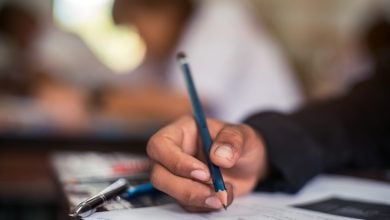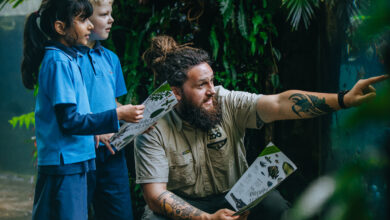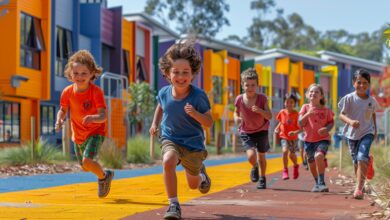Generative AI tools used frequently by interested primary teachers in NZ
NZCER found generative AI tools are frequently used to support teaching and learning in primary classrooms with an interested teacher.

Generative AI chatbots and other tools were found to be used “frequently” by primary teachers who identified as being interested in the technology.
The finding comes from a survey carried out by the New Zealand Council of Educational Research (NZCER), who recruited 266 primary teachers. Participants were found on a voluntary basis, which meant the sample contained a disproportionate number of teachers who were interested in AI.
Read the latest print edition of School News online HERE.
Of these respondents, almost half reported using AI tools daily, or several times a week.
Author David Coblentz says “Even with a sample of students and teachers already interested in AI, the picture is clear – AI use is widespread in primary schools, and has been for some time.”
The report found many of the primary teachers surveyed had integrated AI tools into their regular teaching practice.
“The frequent use of generative AI chatbots and educational content platforms underscores these specific tools’ usefulness in supporting primary teachers in lesson planning, assessment design, and personalising learning experiences and suggests that teachers may be primarily turning to generative AI tools to save time with preparation for teaching, focusing on tasks that require heavy cognitive and time commitments,” reads the report.
The survey found that most responding primary teachers used generative AI to support lesson planning, with 82 percent of respondents reporting using AI tools for this purpose. In order, the next most common uses are designing assessments (66 percent), personalising learning (65 percent), conducting teaching research (59 percent) and writing student feedback reports (51 percent).
Almost half of teachers reported using generative AI for professional development, and a third reported using the tools for administrative support. A quarter of respondents used the tools for marking and feedback.
The survey also found that most teachers were utilising the free versions of generative AI software. The authors noted this was significant because unpaid AI tools are generally older and less capable models that are more prone to error and bias.
Additionally, despite self-reporting as having disproportionately high interest in generative AI, over half of teachers surveyed were not confident teaching responsible use of AI, and 85 percent wanted more training. Most teachers did not feel adequately supported to implement AI tools into their teaching practice.
Other challenges noted by teachers included observed inaccuracies from the AI tools, and a lack of specificity for the Aotearoa New Zealand context.
Only 8 percent of responding teachers said their school had a policy for teachers’ use of AI tools, but a quarter noted that such a policy was in development. Most teachers had not seen the national guidance on AI tools in the classroom.
The authors concluded that there was a strong demand for guidance on AI in primary school classrooms, and noted that without clear frameworks and guidance, AI adoption in primary schools could quickly become inequitable and even lead to serious data and privacy breaches.
Coblentz said there was a “dire need for guidance” in primary schools.
“Teachers need culturally supportive, centralised policy and guidance on safe and ethical use of AI in the classroom. Part of this needs to be integrating critical literacy for students – helping them understand exactly what these tools are, their inbuilt biases and how to think critically about what something like ChatGPT produces.”
In the meantime, Coblentz urged schools to review the quality of their AI tools.
“Free AI tools are too error-prone and bias-laden, yet they are the main tools of this kind used in our classrooms. Supporting teachers to use more capable versions of generative AI tools would reduce some of the risks involved in their use.”









